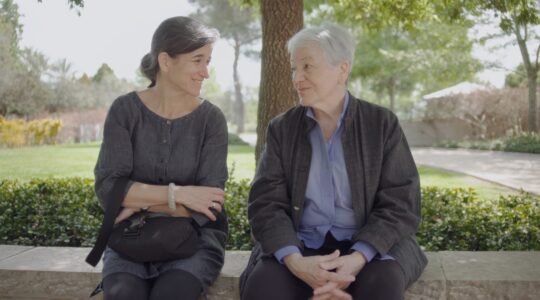In a case that could have drastic implications for rabbinic courts, a judge ruled last week that a defamation lawsuit by a Brooklyn woman against a bet din will go to trial.
"This opens the door to a whole new genre of cases in which people are suing rabbis for doing what rabbis have done for centuries," said attorney Nathan Lewin, who is defending the Union of Orthodox Rabbis of the United States and Canada, known as Agudas Harabonim, one of America’s oldest rabbinic courts.
In denying a motion to dismiss the suit by Helen Chayie Sieger of Borough Park, Judge Martin Schoenfeld of state Supreme Court in Manhattan decided that the case would not involve interpretation of religious law.
Such an involvement would be a violation of the constitutional separation of church and state, and was the basis for the defense claim that a secular court has no jurisdiction over this matter.
"There are times when it is appropriate and necessary for courts to decide matters ‘touching upon religious concerns,’" wrote Schoenfeld in his decision. "The complaint’s claims will survive or be dismissed based upon whether they satisfy the criteria imposed by New York secular law. Religious doctrine will only come into play by providing context for understanding the significance to Orthodox Jews of such customs as a mikvah."
The case stems from the Agudas Harabonim’s issuance of an obscure document known as a heter meah rabbanim, or decree of 100 rabbis, to allow Sieger’s husband, Chaim, to remarry without giving her a Jewish divorce, or get. The decree essentially labels Sieger an unfit wife, causing her to be ostracized in the tightly knit Orthodox community in which she has spent her entire life, she says.
Sieger was seeking at least $1 million for each of the 14 charges she has leveled against the rabbis collectively and/or individually, ranging from intentional infliction of emotional distress and fraud to defamation and breach of contract. Among the charges, Sieger accuses the bet din of accepting a $50,000 bribe from her husband to obtain the heter.
Schoenfeld granted the defense motion to dismiss three of Sieger’s accusations: fraud, injurious falsehood and negligence.
Defense attorneys had apparently hoped to use a similar case dismissed by the same court as a precedent. In Klagsbrun vs. Vaad Harabonim of Greater Monsey, a man sued the rabbinic court for publishing a statement that he was a bigamist for remarrying without granting his first wife a get.
But Schoenfeld said that case would have required the court to determine whether the plaintiff engaged in "bigamy within the meaning of the Orthodox faith."
In the Sieger case, the document produced by the Agudas Harabonim contained such statements as that Sieger "turned her house into an insane asylum," which may be actionable under state standards of defamation, Schoenfeld wrote.
"The judge is simply wrong," said Lewin, who is preparing an appeal of the ruling. "This is an alarming intrusion into a religious community’s ability to conduct its own religious affairs."
But Sieger’s lawyer, Christopher J. Sullivan, argued that the mere fact that Sieger brought the case to a secular court illustrates the severity of the case. "This is not a woman who is a feminist or renegade," said Sullivan. "She believes very strongly in the integrity of the bet din system as a theological device …That she would look to a secular court for relief is indicative of the extent to which her life was devastated."
Marc Stern, the American Jewish Congress’s expert on religion and law, predicted that thorny theological interpretations were bound to arise. "Some of the claims made [by the rabbis] of not going to the mikveh or refusing to accept a get may be provable," said Stern. "But it is questionable whether the judge will have to pass on whether the particular use of a mikveh is kosher or not. [He] may have been overly optimistic about his ability to decide the case without religious questions." The Third International Conference on Feminism and Orthodoxy, taking place this weekend at the Grand Hyatt Hotel, added a session at the last minute to explore the implications of the case. Geri Krauss, one of Sieger’s attorneys, will speak on Sunday afternoon.
The New York Jewish Week brings you the stories behind the headlines, keeping you connected to Jewish life in New York. Help sustain the reporting you trust by donating today.




